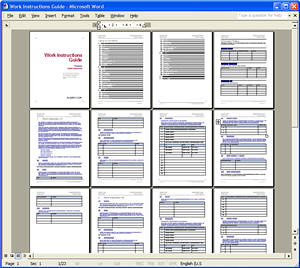Accept and except are spelled differently, but they're pronounced the same. That makes them difficult to write with, a problem that's further complicated by the fact that they have so many different meanings and forms of use. But if you put one in the wrong place in your book, you're going to greatly confuse your readers and totally change your own plots.
Accept
Accept basically means to take or to agree. The word can also be used to show a response or an answer (Sally accepted Luke's invitation to have lunch). Synonyms for accept include gain, obtain, welcome and acquire. You can also accept a burden or a responsibility, maybe even unwillingly (I accept blame for all my wrongdoings). It's used in a lot of different ways, and that's what makes it so hard to use properly.
In spoken English, accept sounds like another word with a lot of definitions: except.
Except
Basically, except just means but. A fancier definition for the word is other than; you can also use the synonym unless. Other synonyms include excluding, save and without. Everyone was standing, except me. You could just as easily write Everyone was standing, other than me. But put accept where except ought to be, and you end up saying something like Everyone was standing, to take me. Doesn't make much sense, right?
- Expect
It's worth noting that expect is also a word, and it's one of those tricky typos that's so easy to make because the hands know how to move faster than the brain. It's very easy to type expect instead of except, and the meanings are wildly different. Expect means to anticipate. So suppose you type expect instead of except, and you really should have typed accept in the first place? You might end up with a sentence that says something like Bob expected the job with a great sense of joy.
It actually makes sense, and that's why these words are so dangerous. You meant to convey that Bob accepted the job with a great sense of joy. In other words, he got the job and he's happy about it. You went to type except and typed expect instead, and no grammar checker in the world is going to flag you for it. It's not enough to scan through your book to make sure it's grammatically correct. You've got to make sure it's readable, too, so you avoid errors like this. Because if you get that sentence wrong, readers won't understand that Bob actually did get the job -- and who knows what sort of plot holes that's going to create?
Knowing the Difference
It's much easier to avoid problems with common typos if you're avoiding grammar problems in first place. Knowing how to easily tell the difference between accept and except will only save you trouble in the future.
Remember that we someone is accepting anything, they're essentially saying yes. Becky accepted the gift. Joe accepted the advice with a nod. Joe accepted his defeat like a man, and stepped forward to shake hands.
When something is being excepted, you're basically saying no. Everyone except me understood. Did I understand? No. I liked all of them, except the red one. Did I like the red one? No.
If that only gets you more confused, just go back to your basic parts of speech. Accept is almost always a verb, an action. Except isn't action, it's used more like a conjunction.
Or, you can match letters. Accept means agree, A and A. Except is excluding something, EX and EX.

























